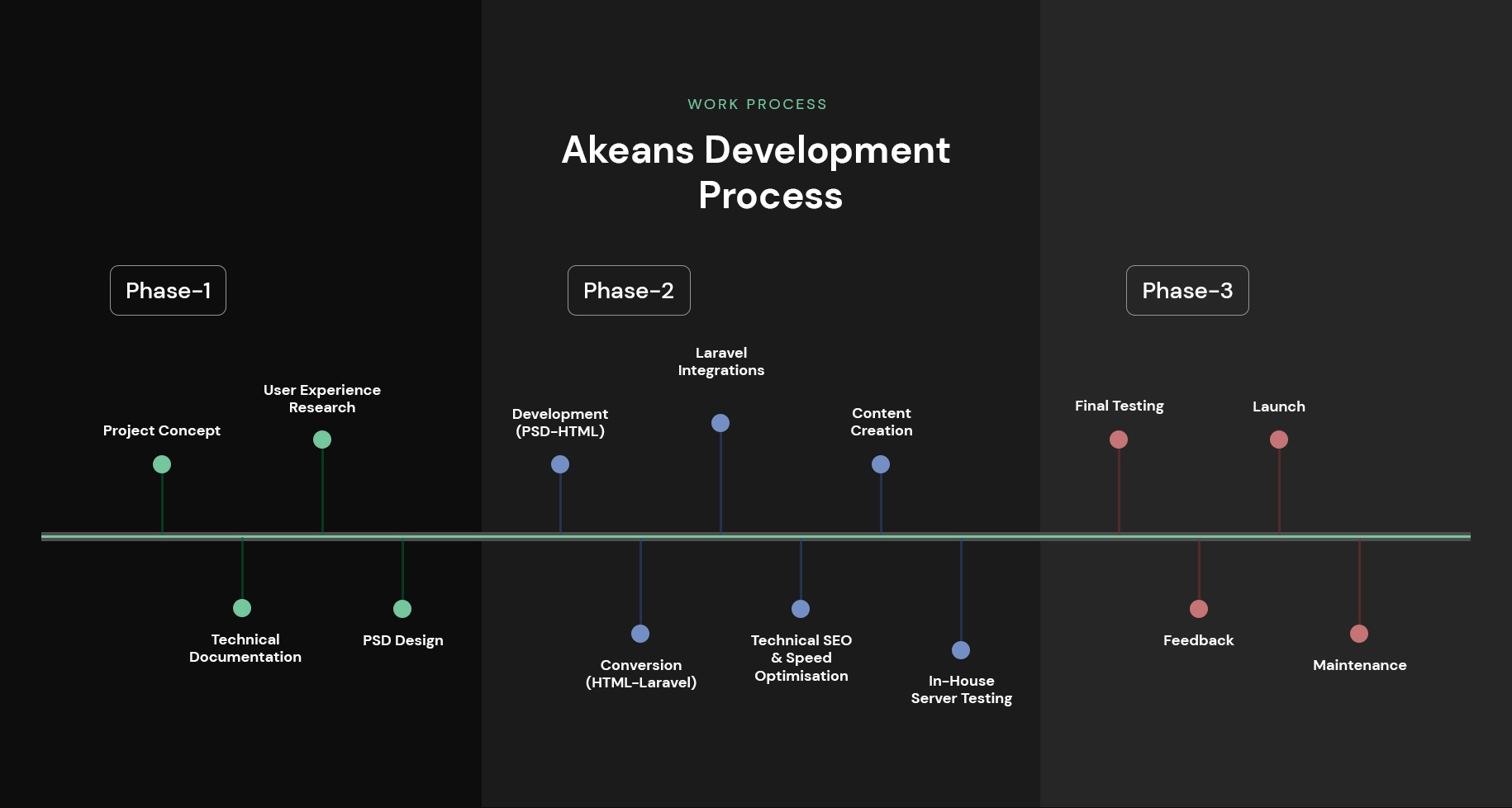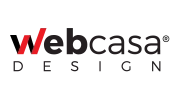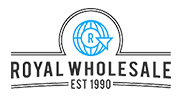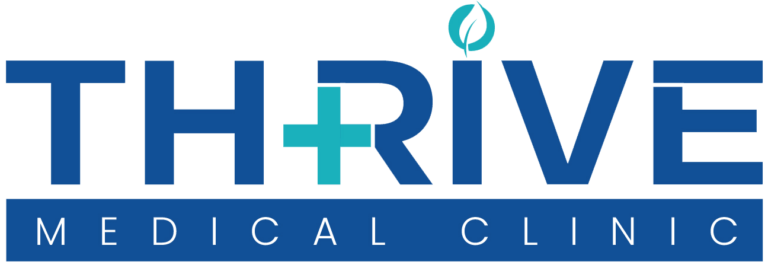Laravel Services
Laravel development company
Akeans is a Laravel development company that specializes in creating robust web applications using the Laravel PHP framework. With a team of skilled Laravel developers, We offer comprehensive Laravel development services including custom application development, API development, CMS development, and e-commerce solutions. We are known for our expertise in building scalable and high-performance web applications that are tailored to meet the unique requirements of businesses. We follows industry best practices and employs modern development methodologies to ensure the delivery of high-quality Laravel applications that are secure, efficient, and user-friendly. We also provide excellent customer support and maintenance services to ensure smooth functioning of the applications.
Request a free quote
Contents
- Laravel Services
- Laravel development company
- Request a free quote
- Laravel development Services
- Laravel eCommerce development solutions
- Laravel mobile app development
- Laravel microservices
- Laravel application development services
- Laravel framework Features
- Laravel web development services
- Laravel package development services
- Laravel maintenance services
- Laralevel Integration
- Client Testimonials
- What our clients say:
- Upgrade your web app with the latest Laravel development technologies.
Laravel development Services
We offer Laravel development services, providing expert solutions for web application development using the Laravel PHP framework. With a team of skilled Laravel developers, We specialize in building robust and scalable web applications tailored to meet clients’ specific requirements. Our services include Laravel web application development, API development, custom module development, theme development, Laravel migration, performance optimization, and Laravel consulting. We deliver high-quality Laravel solutions that are efficient, secure, and user-friendly, helping businesses achieve their online goals.


Laravel eCommerce development solutions
We provide Laravel eCommerce development solutions, offering comprehensive services for building online stores using the Laravel PHP framework. With expertise in Laravel development, We deliver tailored eCommerce solutions that are scalable, secure, and feature-rich. From customizing online stores with intuitive UI/UX designs to integrating payment gateways, managing product catalogs, and optimizing performance, We provide end-to-end Laravel eCommerce development solutions for businesses of all sizes, helping them establish a robust online presence and drive success in the competitive eCommerce landscape.
Laravel mobile app development
We offer Laravel mobile app development services, providing customized solutions for businesses seeking to build mobile applications using the Laravel PHP framework. With expertise in Laravel development, We deliver high-quality, scalable, and feature-rich mobile applications that cater to the unique requirements of clients. Our services encompass end-to-end mobile app development, including UI/UX design, backend development, API integration, testing, and deployment. We aim to deliver cutting-edge mobile applications that drive business growth and enhance user experiences.


Laravel microservices
We provide is a framework built on top of Laravel for developing microservices-based applications. It provides an opinionated architecture for building microservices that communicate with each other through HTTP/RESTful APIs. We leverage Laravel’s powerful features such as Eloquent ORM, Blade templates, and routing system while providing additional features for building microservices such as service discovery, load balancing, and fault tolerance. With Akeans, developers can quickly build scalable, resilient, and modular microservices-based applications with ease.
Laravel application development services
We provide Laravel application development services. Laravel is a popular PHP framework used for building robust and scalable web applications. We offer professional Laravel development services to businesses and organizations, utilizing the power of Laravel’s features and capabilities. Our services include custom Laravel application development, Laravel API development, Laravel migration and integration, Laravel maintenance and support, and more. We aim to deliver high-quality Laravel solutions that meet their client’s specific requirements and help them achieve their business goals.


Laravel framework Features
- MVC architecture for separation of concerns
- Elegant syntax and code structure
- Blade templating engine for faster development
- Artisan command-line interface for automating tasks
- Eloquent ORM for database management
- Built-in authentication and authorization system
- Robust routing system
- Middleware for handling HTTP requests and responses
- Unit testing support
- Integration with third-party tools and libraries.
Laravel web development services
We offer professional Laravel web development services. With a team of experienced Laravel developers, We provide end-to-end web development solutions using Laravel, a popular PHP framework known for its robustness, scalability, and flexibility. We specialize in creating custom web applications, CMS, e-commerce platforms, and more, using Laravel’s features such as MVC architecture, Eloquent ORM, routing, and caching. Trust Akeans for reliable Laravel web development services that deliver high-quality, feature-rich, and efficient web solutions tailored to meet your business requirements.


Laravel package development services
We offer Laravel package development services, specializing in creating custom Laravel packages to enhance the functionality and performance of Laravel applications. Our services include designing, developing, and testing Laravel packages tailored to meet specific business requirements. With expertise in Laravel and PHP, We deliver high-quality, well-documented Laravel packages that can be easily integrated into Laravel applications, providing added features, improved performance, and increased productivity for Laravel developers.
Laravel maintenance services
We offer Laravel maintenance services, catering to the needs of Laravel-based web applications. With our expertise in the Laravel framework, We provide comprehensive maintenance services to ensure smooth functioning and performance optimization of Laravel applications. Our services include regular updates, bug fixes, security patches, performance enhancements, and code refactoring. Our Laravel maintenance services are designed to keep Laravel applications up-to-date, secure, and optimized, allowing businesses to focus on their core operations without worrying about their Laravel-based web applications.


Laralevel Integration




Client Testimonials
What our clients say:



















